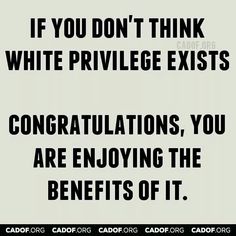Application procedure for new licences
(2) Subject to section 36(2) an application for a licence referred to in section 33(1) must be lodged with the Authority and the designated liquor officer in whose area of jurisdiction the proposed licensed premises are located by 14h00 on the Friday preceding the first Friday of any month or, if that preceding Friday is a public holiday, on the last working day before that public holiday.
(3) An application referred to in subregulation (3) must be -
(a) made in the form of Form 3 in Annexure 3;
(b) typed in script on A4 size standard paper; and
(c) contained the information as required in that form.
An application must be accompanied by:
(a) a comprehensive floor plan of the premises clearly showing:
(i) the proposed licensed premises indicated in colour in relation to the entire premises;
(ii) the uses of each room on the premises;
(iii) the uses of all the rooms on the premises;
(iv) all doors, windows and counters (where applicable) and means of internal and external communication;
(v) the streets and places to which such means of external communication lead; and
(vi) where liquor will be stored on the proposed licensed premises;
(b) a site plan showing:
(i) an outline of every building within the vicinity of the proposed licensed premises on the erf to which the application relates;
(ii) other licensed premises on the erf;
(iii) the uses of all the buildings within the vicinity of the proposed licensed premises on the erf; and
(iv) the date of preparation and the name and address of the person who prepared the plan;
(c) in a separate document, a description of the premises with reference to the construction, layout, furnishing, fixtures, fittings and floor covering;
(d) colour photographs showing the completed internal and external features of the premises or, where the application relates to incomplete premises referred to in section 44, the stage of completion of the premises;
(e) written representations in support of the application;
(f) written representations in support of any determination, consent, approval or authority required by the applicant in terms of the Act;
(g) proof that the applicable application fee set out in item 1 of Annexure 1 has been paid to the Authority;
(h) a copy of the identity document of the applicant and, in the case of a person other than a natural person, copies of the relevant registration documents, indicating the identity and, where applicable, the financial interest of all members, directors, partners or beneficiaries;
(i) such other documents as may be specified on the application form and in the Act, or as may be requested by the Authority; and
(j) notice of lodgement in the form of Form 4 in Annexure 3.
Western Cape Liquor Regulations
LIQUORSENSE
PO Box 18184
Wynberg
081 598 8145
An application must be accompanied by:
(a) a comprehensive floor plan of the premises clearly showing:
(i) the proposed licensed premises indicated in colour in relation to the entire premises;
(ii) the uses of each room on the premises;
(iii) the uses of all the rooms on the premises;
(iv) all doors, windows and counters (where applicable) and means of internal and external communication;
(v) the streets and places to which such means of external communication lead; and
(vi) where liquor will be stored on the proposed licensed premises;
(b) a site plan showing:
(i) an outline of every building within the vicinity of the proposed licensed premises on the erf to which the application relates;
(ii) other licensed premises on the erf;
(iii) the uses of all the buildings within the vicinity of the proposed licensed premises on the erf; and
(iv) the date of preparation and the name and address of the person who prepared the plan;
(c) in a separate document, a description of the premises with reference to the construction, layout, furnishing, fixtures, fittings and floor covering;
(d) colour photographs showing the completed internal and external features of the premises or, where the application relates to incomplete premises referred to in section 44, the stage of completion of the premises;
(e) written representations in support of the application;
(f) written representations in support of any determination, consent, approval or authority required by the applicant in terms of the Act;
(g) proof that the applicable application fee set out in item 1 of Annexure 1 has been paid to the Authority;
(h) a copy of the identity document of the applicant and, in the case of a person other than a natural person, copies of the relevant registration documents, indicating the identity and, where applicable, the financial interest of all members, directors, partners or beneficiaries;
(i) such other documents as may be specified on the application form and in the Act, or as may be requested by the Authority; and
(j) notice of lodgement in the form of Form 4 in Annexure 3.
Western Cape Liquor Regulations
LIQUORSENSE
PO Box 18184
Wynberg
081 598 8145















